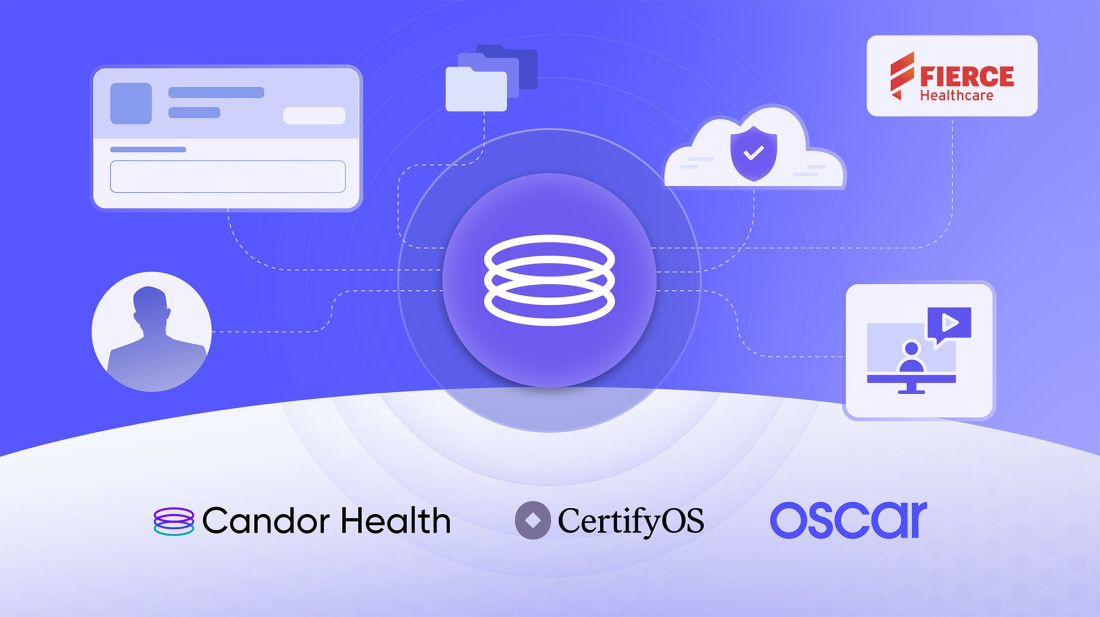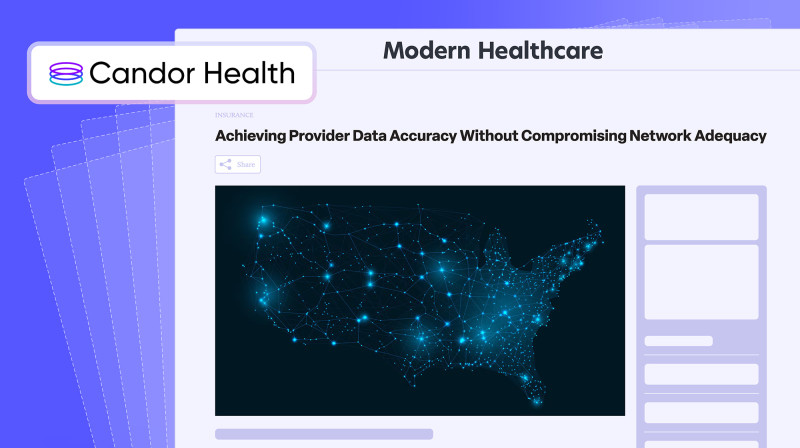Webinar Roundup: Four Takeaways for Smarter Provider Data Systems
Accurate provider data is now essential. Learn how Candor Health, CertifyOS, and Oscar Health are advancing scalable, interoperable systems that protect compliance and improve member experience.


In our recent Fierce Healthcare webinar with CertifyOS and Oscar Health, one key truth emerged: accuracy and infrastructure must evolve together. For decades, health plans have struggled with fragmented provider data, increasing regulatory demands, and rising member expectations. As Jennifer Dougherty-Gallagher, VP of Network Operations at Oscar Health, observed during the webinar, "An address should just be an address, but it's not." Provider data moves across payers, MSOs, and delegated groups, each with different definitions and update cadences. Addressing these challenges requires more than technology; it requires ownership, collaboration, and systems that can scale with the industry.
1. Provider data accuracy is now a regulatory and reputational imperative
New regulations have made accurate provider data non-negotiable. Candor Health CEO Sury Agarwal highlighted the stakes: "The No Surprises Act required directory updates every 90 days, but the Real Health Provider Act takes it further with civil penalties for inaccuracies."
Errors in provider data can directly affect members' access to care. CMS now allows Medicare Advantage members to switch plans mid-year if directories are inaccurate. Mitch Gorodokin, Senior Vice President of Business Development at CertifyOS, added a technical perspective: "No amount of automation or AI will make your data accurate if it is not structured and governed properly." Accurate, well-governed data protects both compliance and trust.
2. The data problem isn't just technical, it's structural
Provider data flows through multiple systems, and a single change, such as an address update, can ripple through claims, directories, and adequacy reports. Agarwal explained, "Even if accurate data exists somewhere, maintaining and distributing it across systems is incredibly hard without the right infrastructure in place."
Ownership is critical. "We cannot rely solely on delegate or provider groups to send us clean rosters. We need proactive monitoring, validation, and enrichment of the data ourselves," Agarwal emphasized. Addressing structural gaps ensures accuracy is embedded across workflows rather than applied downstream.
3. Fragmented incentives complicate achieving clean data
Provider groups and payers often have misaligned priorities, which can lead to over-listing providers and creating "ghost networks" that frustrate members and regulators. Implementing intelligent validation layers and a unified provider data infrastructure allows organizations to align incentives.
As Agarwal noted, "Accuracy, efficiency, and member experience can move in the same direction when incentives are aligned." When partners focus on data integrity, the entire network benefits, from operational efficiency to member trust. The right systems reduce administrative overhead, improve provider engagement, and enhance member experience.
4. The future belongs to interoperable, AI-ready infrastructure
Looking ahead, success depends on pairing accurate data with scalable systems. "AI is only as effective as the data feeding it. Stability at the data layer is essential. It enables every downstream workflow, from claims to directories to analytics," Agarwal explained.
Gorodokin added, "A scalable system ensures accuracy becomes a byproduct of design, not constant remediation." The panel identified several success factors for the future of provider data management:
National visibility into provider practice locations and network overlaps
Interoperable systems supporting real-time change management and audit tracking
Infrastructure capable of scaling across directories, referrals, and claims
Intelligent survivorship logic to resolve conflicting records and establish a single source of truth
Together, these capabilities create a proactive, transparent, and continuously improving provider data ecosystem.
Advancing accuracy across the industry
Accurate provider data is the foundation of trust among health plans, providers, and patients. Transitioning from fragmented systems to unified, well-governed data requires collaboration across the industry. Partnerships with organizations like CertifyOS and Oscar Health demonstrate how connected data and modern infrastructure can streamline operations, support compliance, and enhance the member experience.
To learn how Candor Health can help your organization strengthen provider data accuracy and infrastructure, contact our team today.
More Posts

Case Study: How Sana Benefits Scaled Care Navigation

The Overlooked Bottleneck of Provider Data Accuracy


Provider Data Accuracy Without Compromising Network Adequacy
